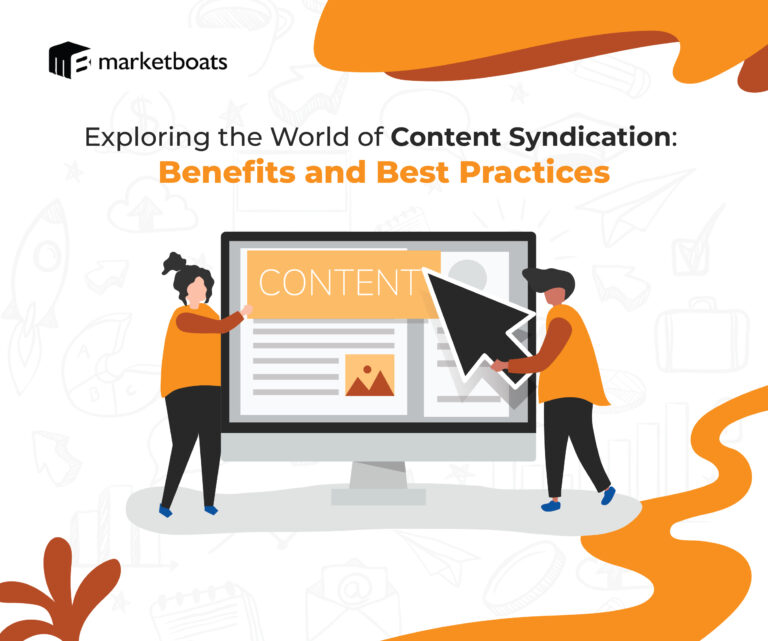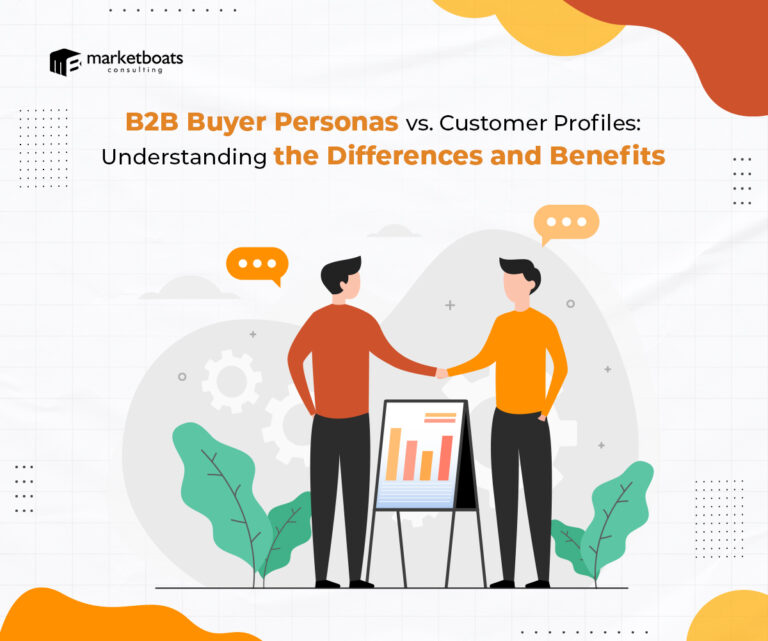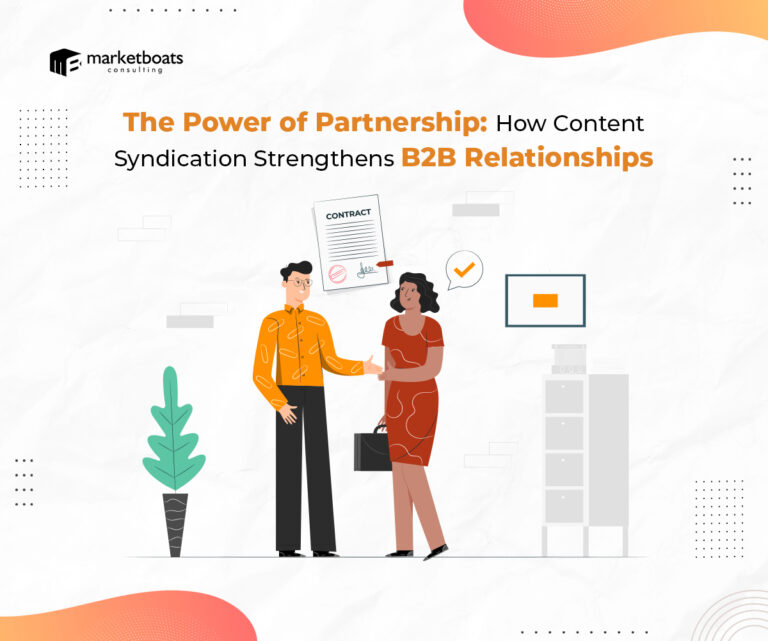Maximizing lead conversion is crucial for sustainable business growth in the world of B2B sales. To achieve this, companies must prioritize the cultivation of loyal customers. B2B marketing automation has become a vital tool in developing effective strategies that guide leads through the entire sales funnel, emphasizing the value of products and services to establish long-term relationships.
Automated lead generation not only optimizes processes and personalizes content but also creates lead-scoring systems that provide crucial efficiency and insights. This enables timely follow-ups and informed decision-making. However, balancing automation and personal communication is crucial in developing a comprehensive and effective lead conversion strategy.
The use of lead automation software is booming in the industry. Recent reports have found that 80% of marketers who utilize this software witness a surge in leads, with some experiencing up to a staggering 451% increase. Furthermore, 77% of those who implement automation software convert more leads than those who don’t.
As businesses continue to evolve, mastering automation becomes increasingly critical to your success. In this article, discover the importance of automating B2B lead conversion, and learn how to automate your lead conversion to achieve maximum ROI.
Automating the B2B Lead Conversion Process – Benefits
Automating the B2B lead conversion process offers several benefits, including:
- Increased Efficiency and Productivity: Automated lead generation empowers sales teams to automate repetitive tasks and prioritize nurturing customer relationships and closing deals. By streamlining manual processes, automation significantly enhances sales teams’ overall efficiency and productivity, allowing them to achieve more in less time.
- Consistent Lead Nurturing and Follow-Up: Implementing automation guarantees that leads in the sales cycle receive timely and uniform follow-ups. Through this technology, businesses can provide customized content, communicate with potential clients at optimal moments, and manage relationships methodically. This systematic approach heightens the likelihood of conversion.
- Improved Lead Qualification and Prioritization: By utilizing various tools, lead management automation can be established with predetermined criteria. As a result, businesses can efficiently distinguish high-quality leads and allocate immediate attention to them. Focusing sales endeavors on leads with a greater probability of conversion leads to optimized resource allocation.
- Enhanced Tracking and Analytics for Better Decision-Making: The implementation of automation results in comprehensive tracking and analytics capabilities, providing valuable insights into lead behavior, engagement, and conversion patterns. This information empowers businesses to make informed decisions, refine their lead conversion strategies, and optimize their sales processes, ultimately resulting in improved outcomes.
Key Steps in Automating the B2B Lead Conversion Process
Step 1: Set Clear Sales Goals
Setting clear sales goals is crucial for providing a sense of direction and focus for your sales team. Not only do they help align efforts towards specific targets and objectives, but they also create motivation and accountability. By defining these goals, you provide a benchmark for measuring performance and holding individuals accountable for their results while also prioritizing activities and allocating resources effectively.
Clearly defined sales goals not only guide decision-making in terms of prospecting, lead management automation, and sales strategies but also enable performance tracking and evaluation. You can ensure a cohesive approach that contributes to your company’s growth and success by aligning sales goals with broader organizational objectives.
Step 2: Implement Lead Generation Tactics
When it comes to implementing automated lead generation tactics for B2B, there are several effective strategies that businesses can use. Here are some examples of B2B lead generation tactics:
a. Creating downloadable templates or checklists for visitors: Providing accessible and useful resources, such as immediately available templates or checklists, can effectively draw in prospects. These resources garner pragmatic value for visitors and serve as magnetic opportunities for lead generation by requiring visitors to provide their contact details in exchange for the download.
b. Utilizing targeted content marketing strategies: A well-crafted and informative content that effectively addresses the pain points and challenges of the intended audience can effortlessly attract and captivate potential leads. The content can take various forms, ranging from blog posts, whitepapers, and case studies to industry reports, and can foster more leads by optimizing it for search engines and utilizing multiple channels to promote its reach.
c. Leveraging social media advertising campaigns: Social media platforms have emerged as potent channels for B2B lead generation by virtue of their powerful targeting capabilities. Businesses can effortlessly reach their target audience and direct them toward relevant landing pages or lead capture forms through targeted advertising campaigns on notable platforms like LinkedIn, Facebook, or Twitter. Tailoring ad messaging to align with the target audience’s pain points and needs can significantly elevate lead-generation outcomes.
Step 3: Measure and Track Lead Conversion Rate
Measuring and tracking lead conversion rate (LCR) is essential for evaluating the effectiveness of your automated lead generation and sales efforts. Calculation of lead conversion rate (LCR):
| LCR = (Total number of conversions / Total number of leads) x 100 |
Accurate measurement of the percentage of high-quality leads converted into customers can identify patterns and enable evidence-based decision-making. Consistent monitoring and analysis of the lead-to-customer conversion rate (LCR) allow the identification of alterations that improve sales and marketing techniques.
To efficiently manage and track lead conversion, CRM software is a crucial tool. It enables businesses to organize and store lead data, monitor interactions during the sales process, and track conversion outcomes. By leveraging CRM software, businesses can efficiently optimize their lead conversion strategy and identify bottlenecks for continuous improvement.
Step 4: Implement Marketing Automation
The use of marketing automation in B2B lead conversion can greatly enhance your lead nurturing and sales operations. Here are some compelling ways to employ marketing automation in B2B lead conversion:
a. Lead nurturing through personalized email sequences: Marketing automation empowers you to generate and automate customized email sequences based on each prospect’s behavior and engagement. Through the segmentation of leads and the provision of targeted content at various stages of the buying process, you cultivate strong relationships, deliver pertinent information, and ultimately guide leads toward conversion. By utilizing automation, you can effectively nurture leads and sustain their engagement with your brand.
b. Automated follow-ups based on prospect engagement: Marketing automation facilitates creating automated follow-up sequences triggered by specific actions or events performed by prospects. With marketing automation, you can automatically send relevant emails or notifications to prospects who download a whitepaper or visit a pricing page, keeping them engaged and encouraging further interaction. These automated touchpoints guarantee timely and consistent communication, enhancing lead conversion likelihood.
c. Automated lead scoring to prioritize sales efforts: Lead scoring is an indispensable component of B2B marketing automation for optimizing lead conversion. Through a systematic evaluation of leads’ behavior, engagement, and demographics, a numerical score is attributed to identify the most qualified and sales-ready leads. Automated lead scoring provides a clear direction to streamline your sales efforts and prioritize leads possessing the highest conversion potential. This enables your sales team to allocate time and resources effectively, resulting in optimal impact.
Best Practices for Automating B2B Lead Conversion Process
Lead management automation can greatly benefit your business, but following best practices is important to ensure success. Here are some best practices for automating the B2B lead conversion process:
- Integration of marketing and sales teams: Effective automation necessitates a collaborative relationship between marketing and sales teams. It is essential to harmonize their objectives, establish protocols for lead distribution, and create transparent avenues of communication. Through integrating these departments, the exchange of information can be optimized, resulting in a smoother lead conversion process.
- Regular analysis and optimization of automated processes: Effectively implementing automation requires continuous monitoring and analysis rather than a one-time setup. To achieve optimal results, it is vital to regularly review automated workflows, analyze performance metrics, and identify potential areas of enhancement. This involves identifying bottlenecks, troubleshooting inefficiencies, and exploiting opportunities to optimize the process.
- Continuous improvement through A/B testing and data-driven decision-making: Implementing A/B testing tactics can increase your chances of success in improving automated processes. This approach involves experimenting with various versions of your subject lines, email content, call-to-action buttons, and landing page designs. The gathered data is subsequently examined and analyzed to refine your automation strategies based on the gained insights and informed decisions.
- Compliance with data privacy regulations: It is imperative that your automation procedures adhere to applicable data privacy regulations, such as GDPR or CCPA. Be sure to seek clear authorization for obtaining and utilizing customer data and implement adequate safety measures for safeguarding sensitive information. Ensuring compliance is crucial for instilling trust and avoiding undesirable legal consequences.
Tools and Resources for Automating B2B Lead Conversion
Automating B2B lead conversion can be effortless using various lead automation tools and resources. Evaluate your business’s specific needs, budget, and goals to select the appropriate tools. Integration capabilities, scalability, ease of use, and customer support are all critical factors to consider.
Below are valuable lead automation tools and resources that you could make the most of:
- Marketing Automation Platforms: Leading marketing automation platforms such as HubSpot, Marketo, Pardot, and ActiveCampaign provide powerful tools for streamlining a wide range of marketing activities.
From lead nurturing and email marketing to lead scoring and campaign management, these platforms offer comprehensive solutions to effectively manage and optimize your lead conversion process.
- CRM Systems with Built-in Automation Features: Customer Relationship Management (CRM) systems such as Salesforce, Zoho CRM, and Microsoft Dynamics 365 often include automation features or integrate with marketing automation platforms.
These systems allow you to track and manage customer interactions, automate lead assignments, and synchronize data between marketing and sales teams.
- Lead Generation and Management Software: Tools specifically designed for lead generation and management can be beneficial. Examples include Leadfeeder, Lead Forensics, and Clearbit.
These tools help identify website visitors, capture leads, and provide valuable insights to support lead management automation.
- Email Marketing and Personalization Tools: Email marketing platforms like Mailchimp, Campaign Monitor, and Brevo enable you to automate email campaigns, personalize messages, and segment your audience.
They offer features like drip campaigns, autoresponders, and email analytics, helping you deliver targeted and timely communications to nurture leads.
- Data Analytics and Reporting Tools: Analytics tools such as Google Analytics, Adobe Analytics, and Kissmetrics allow you to track and analyze the performance of your lead conversion efforts.
They provide valuable insights into website traffic, user behavior, and conversion rates, helping you identify areas for improvement and make data-driven decisions.
- Workflow Automation Tools: Workflow automation tools such as Zapier, IFTTT, and Microsoft Power Automate enable you to automate repetitive tasks and integrate different software applications.
These tools allow you to create workflows and trigger actions based on specific events or conditions, saving time and improving efficiency in your lead conversion process.
Summing Up
AI-based lead scoring and personalized technologies can prioritize leads based on their likelihood of conversion, freeing up valuable time. Tasks that once required extensive manual input can now be automated, allowing teams to focus on higher-priority work and strategic initiatives, ultimately driving future growth and success.
B2B lead management automation reduces lead conversion time, resulting in smoother workflows and increased productivity. Automation enables sales teams to focus on nurturing leads and building relationships, which results in consistent and qualified leads.
Want to stay ahead of the lead conversion game?
Revolutionize your lead generation approach with Marketboats Consulting. Our state-of-the-art multichannel content syndication platform grants you unrivaled access to an extensive network of outlet channels, streamlining your search for high-potential growth opportunities.
By leveraging our cutting-edge automated lead generation methods, you’ll boost brand recognition while streamlining your follow-up process, securing a decisive advantage over your competitors.
Experience unprecedented success with Marketboats Consulting.





